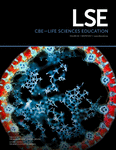Preparing Future Faculty to Assess Student Learning
New Council of Graduate Schools publication highlights effective strategies and best practices
Washington, DC – The next generation of faculty will be better prepared to help their students learn, thanks to a new Council of Graduate Schools (CGS) report released today. Strategies to Prepare Future Faculty to Assess Student Learning is the product of a three-year project to identify models for infusing undergraduate learning assessment skills into existing Preparing Future Faculty (PFF) programs. With support from the Alfred P. Sloan Foundation and the Teagle Foundation, and in collaboration with seven funded institutions and 19 affiliates, the project involved nearly 1,300 graduate students and 200 faculty across the humanities, social sciences, and STEM (Science, Technology, Engineering, and Mathematics).



